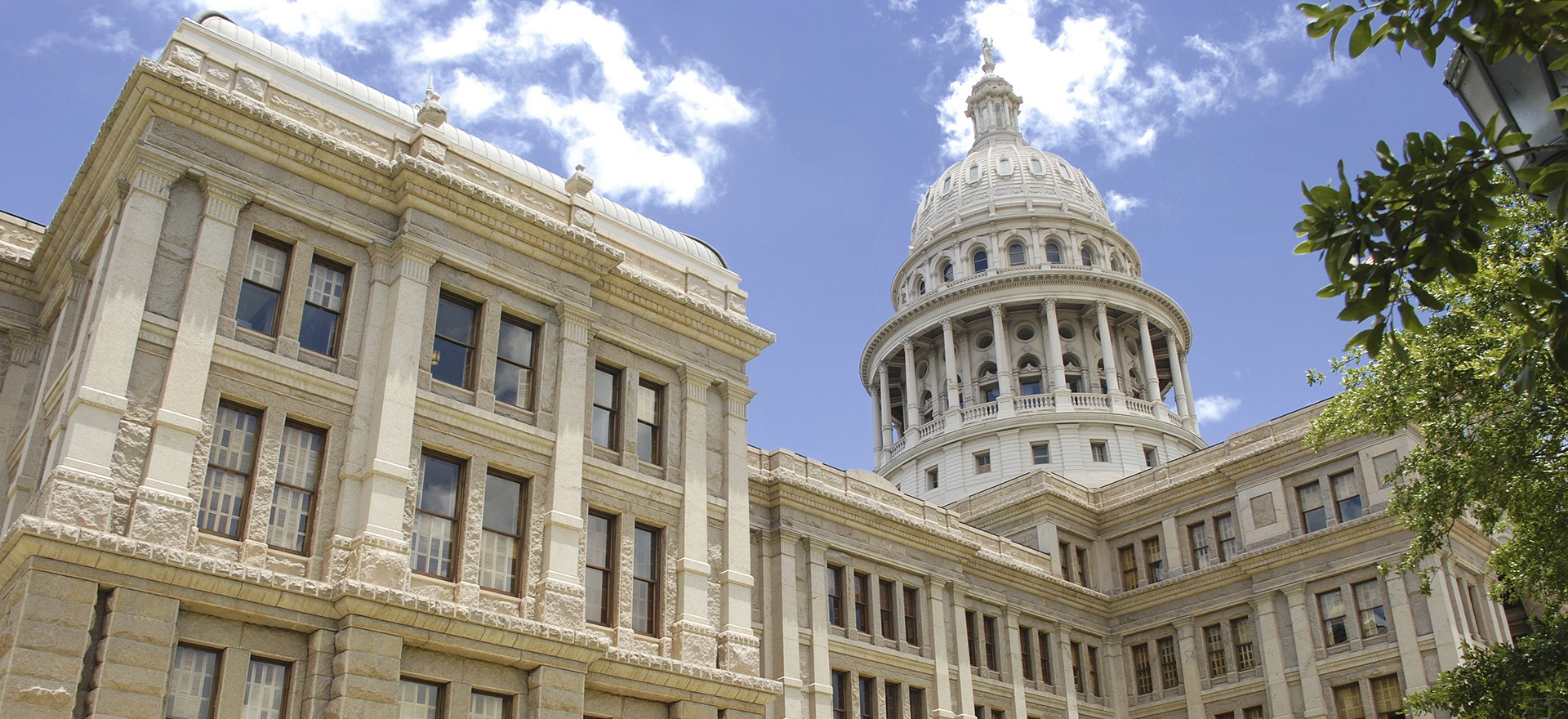Teach the Vote's Week in Review: May 17, 2019

School Finance Texas Legislature
Date Posted: 5/17/2019
With major session deadlines hitting this weekend, here's a look at this week's legislative developments, courtesy of the ATPE Governmental Relations team:
- House Public Education committee hears the last of its referred Senate bills
- Senate Education Committee holds final hearings on education legislation
- The status of major education bills in conference committees
- Anti-educator bills still making the rounds at the Capitol
The House Public Education Committee met once again on Tuesday to continue hearing bills already passed by the Senate. As reported by ATPE Lobbyist Andrea Chevalier in this blog post, much of the focus of Tuesday's hearing centered on the Accelerated Campus Excellence (ACE) turnaround programs proposed by Senate Bill 1412. While the bill contains some measures that ATPE supports, we testified against the bill due to its provisions for the forced ranking of teachers in a school district (which could possibly be based on student performance on standardized tests) and requiring districts to contract with third-party vendors to implement their ACE programs. Similar legislation has been moving through the Senate Education Committee, and related language is being considered as part of House Bill 3, the school finance bill that is pending in conference committee. Read more about that bill below.
Under mandatory session deadlines, this week marked the last week for bills to be heard by House committees in order for them to have a chance of reaching the House floor. The House Public Education Committee also met Thursday to vote out more of the pending bills.
Like its counterpart in the lower chamber, the Senate Education Committee met twice this week on Tuesday and Thursday to hear its final bills of the session. Although the committee can still meet to vote out pending bills that have already been heard, the committee will not hear any additional bills or take testimony from this point forward. One such formal meeting is taking place this afternoon, where the committee is expected to vote on additional pending bills.
During this week's earlier meetings, the Senate Education Committee voted to advance a number of bills supported by ATPE, including House Bill 165 enabling high school students in special education programs to receive endorsements and House Bill 2424 requiring the State Board for Educator Certification (SBEC) to establish and issue new micro-credentials for educators. The committee also approved HB 4205, which as amended is another of the ATPE-opposed bills pertaining to ACE campuses and the criteria under which teachers would be eligible to work on those campuses.
More on these Senate Education Committee hearings can be found in this week's blog posts from ATPE Lobbyist Mark Wiggins here and here.
 The most high-profile bills of the 86th legislative session pertaining to public education are being negotiated by conference committees appointed for the purpose of resolving differences between House and Senate versions of the same bill. Among those bills is the state budget in HB 1, which is the only bill required to be passed before time runs out. Fortunately, the conference committee for HB 1 is holding its last meeting this afternoon, signaling that a final budget deal is near.
The most high-profile bills of the 86th legislative session pertaining to public education are being negotiated by conference committees appointed for the purpose of resolving differences between House and Senate versions of the same bill. Among those bills is the state budget in HB 1, which is the only bill required to be passed before time runs out. Fortunately, the conference committee for HB 1 is holding its last meeting this afternoon, signaling that a final budget deal is near.
This week the conference committee for HB 3 also continued its meetings on the school finance legislation, aiming to release a compromise bill next week. As negotiations progress, ATPE is hopeful that the bill's final version will include an across-the-board raise for educators, although it is unclear what amount will be attached to that raise and how it will be structured. While the final bill will most likely contain some form of merit pay, there seems to be a desire among legislators to limit the use of STAAR test data in determining such pay. Additionally, we are optimistic that a final compromise on HB 3 will no longer include many of the controversial outcomes-based funding proposals and additional testing that the Senate included in its version. Even as these rumors are promising, ATPE urges our members to continue to contact your legislators to share your voice on HB 3 using our quick and easy tools on Advocacy Central.
Another bill that has been referred to a conference committee is SB 12, containing language to increase state contributions to TRS and provide retired educators with a 13th check. Since both bills deal with a substantial amount of state funding, a compromise proposal for the TRS bill is likely to be shared only once an agreement has been reached on the larger HB 3. For the latest updates on these bills, be sure to follow @TeachtheVote on Twitter.
Educators’ right to a political voice continues to be a subject of interest in the final rush of session, and bills that could have a negative impact on the education community remain active at various stages in the legislative process.
Unlike last session, this year no legislator filed a bill to limit the ability of educators to pay their voluntary membership dues to organizations such as ATPE through the convenience of payroll deduction. However, there are some legislators still hoping to pass a ban on payroll deduction as an amendment to another bill in these last few days of the session. One failed attempt came earlier this week when Rep. Phil King (R-Weatherford) floated a trial balloon during a House floor debate on a bill pertaining to the comptroller's electronic funds transfer system. Recognizing that it was unlikely to succeed, Rep. King withdrew his amendment that was aimed at limiting payroll deduction options for certain public employees who receive payments electronically from the comptroller's office, such as retirees' annuities.
There is still a possibility that a similar payroll deduction amendment could be added to Senate Bill (SB) 29 by Rep. Mayes Middleton (R-Wallisville), which is a high-profile First Amendment-related bill that could come to the House floor this weekend. SB 29 has been described by its supporters as banning “taxpayer-funded lobbying,” but opponents say the bill is actually aimed at weakening the ability of locally-elected school boards, county leaders, and city governments to petition the state on matters of concern to local voters. In its current form, SB 29 proposes to prohibit such governmental entities from paying dues with taxpayer funds to organizations that lobby the legislature on certain issues. Notably, the bill's anti-lobbying provisions would not apply to charter schools. The interest groups responsible for promoting SB 29 have a long history of fighting against public education and pushing bills aimed at weakening public schools.
Meanwhile, the clock is running out on other bills more directly aimed at educators. SB 1569 by Sen. Pat Fallon (R-Prosper) would outlaw certain political conversations between public school employees while on school grounds. This ATPE-opposed bill was left pending in the House Elections Committee, which has no further plans to meet this session. However this same committee did vote to advance SB 9 by Sen. Bryan Hughes (R-Mineola), which would increase the penalties associated with various prohibited election-related activities. While pitched as a way to protect the integrity of local elections, many of the provisions are written so broadly that they threaten to have a chilling effect and depress voter turnout in many cases. SB 9 also could be heard on the House floor as soon as this weekend.
CONVERSATION
RECOMMENDED FOR YOU

12/19/2025
Teach the Vote’s Week in Review: Dec. 19, 2025
Happy Holidays from ATPE! The ACLU of Texas is challenging SB 12 in federal court, and ATPE has distributed candidate surveys to those running for statewide, legislative, and SBOE seats.

12/18/2025
Gov. Abbott’s property tax promise and the split in the Texas GOP
Property taxes aren’t just a political talking point. They’re the main revenue source for vital local services, including police, fire, and public education.

12/12/2025
Dec. 8 filing deadline sets the stage for 2026 elections
Now’s the time to confirm your voter registration and update it if necessary.




